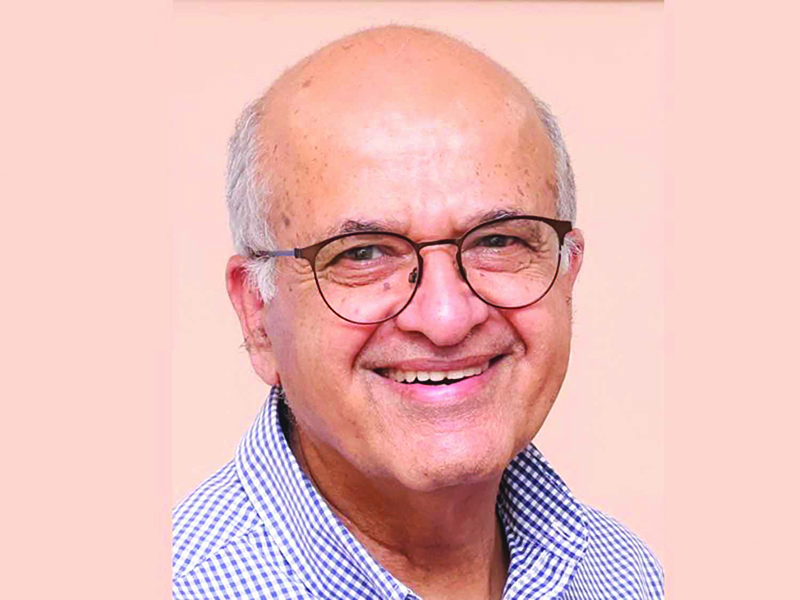Why health education should be mandatory in every school
— Dr. Rahul Mehra is Chairman, Tarang Health Alliance (www.taranghealthalliance.org), National Representative of India, UNESCO Chair, Global Health & Education
It’s very difficult to improve health habits of the average Indian adult. Therefore the long-term solution is to educate India’s children to develop healthy habits at a time when their minds are impressionable
Most Indians believe we are a healthy nation, given that yoga originated in India, and because we host the highest percentage of vegetarians in the world. But are we truly healthy? According to WHO, the average number of years an Indian can expect to live in “full health” without disease and/or injury is merely 60 years. (cf. Japan 74 years; China 69 years; Bangladesh 64 years). Compared to other Asian countries, India’s health is clearly lagging.
Poor health limits capability of individuals to realise their full potential, which impacts their happiness quotient. India is ranked #126 out of 143 countries in the 2024 Happiness Report of the United Nations. Poor health hampers productivity which makes the economy less competitive globally. It pushes millions of people below the poverty line and many families become bankrupt because of high medical expenses.
Why is India an unhealthy nation? Because there’s a high prevalence of infectious, heart, diabetes and lung diseases. About a third of adults have high blood pressure and a quarter are diabetic or pre-diabetic. It is not unusual to hear about a young relative or friend suffering a heart attack before turning 40. Such tragedies are the outcome of malnutrition, poor hygiene, air pollution, lack of physical activity, tobacco use, etc. When an average Indian falls ill, she has limited access to quality healthcare. Although India is a hub of world-class hospitals and doctors, medical care is very expensive.
What’s the solution? The primary goal should be to prevent diseases by developing healthier lifestyle habits. Of course, we need good doctors and hospitals when we fall ill or suffer injury. In Japan, healthy lifestyle habits are an integral part of people’s culture. Their food is healthy, and they maintain utmost hygiene in their daily lives. That is why they live in “full health” for 74 years, 14 years more than Indians. Unfortunately, healthy lifestyle habits are not ingrained in our culture.
Indeed it is difficult to improve health habits of the average Indian adult. Lack of daily physical activity, addiction to sugary/salty foods and tobacco is ingrained in our brains. Therefore, the long-term solution is to educate India’s children to develop healthy habits, at a time when their minds are impressionable. Health education needs to be formally introduced in schools like science or language. We need to teach our children why and how to improve physical, mental and social health behaviours. This is distinct from students engaging in physical activity in schools, such as observing a sports period.
Although most developed countries offer health education as a subject in schools, in some countries it is mandatory. Among them are United Kingdom, Canada and USA. In the United Kingdom, physical and mental health education starts in primary classes and social and reproductive health education in secondary schools. In the US, a comprehensive framework for improving the health of students has been developed by the government and named Whole School, Whole Community, (WSWC). Since school education is the responsibility of state governments, they are encouraged to follow this model. But each state can determine which health topics are mandatory. This is very similar to India, where the education curriculum is primarily controlled by state governments with NCERT being an advisory body.
Due to poor health of the Indian population, the need for health education is much greater. Although there is a government-initiated school health education programme named Ayushman Bharat, it has several shortcomings. There are no textbooks for students, overburdened teachers are expected to teach health programmes, and there is no student assessment to evaluate the impact of the health curriculum. Unfortunately, the National Education Policy (NEP) 2020 does not mandate comprehensive health education in schools, only a physical health development programme.
Against this backdrop, Tarang Health Alliance, a Delhi-based not-for-profit NGO, has developed and is implementing a comprehensive physical, mental and social health programme for middle school (class VI-VIII) students. We have developed a curriculum with text and workbooks for children in the 11-13 age group. Improvement in health knowledge and behaviour is assessed through questionnaires administered at the beginning and end of the academic year.
All adults should press for health education in their child’s or grandchild’s school. Please advocate the need for health education to your school’s principal, Central or State board of education. We need to sow the seed now so that in years ahead the number of years Indians can live in full health will increase to Asian norms.


















Add comment